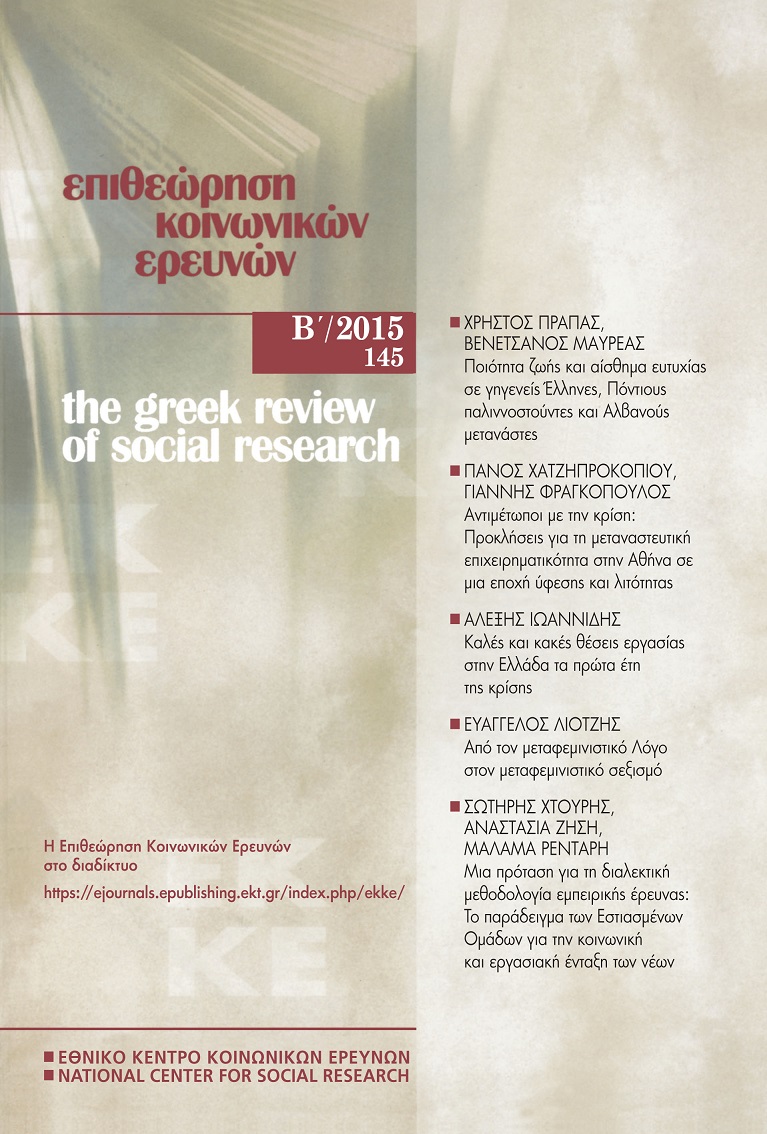Coping with the crisis: challenges to migrant entrepreneurship in Athens at a time of recession and austerity

Abstract
This paper draws on fieldwork research that took place during 2012-13 in order to assess the circumstances of migrant entrepreneurship in the years of the crisis and the ways self-employed immigrants develop in order to cope with the situation they are faced with. The study builds a comparative perspective between migrant-owned and native-owned small businesses in three neighbourhoods of central Athens. Through these, the study unveils three parallel “crises” that predated the current one, even if they are now mingled with its overwhelming dynamics. Firstly, Greece’s «immigration crisis», a product of the way migratory trends have been managed by the State since the early 1990s. This partly relates to the «crisis of small enterprises», major employers of migrant labour in the 1990s, and the challenges posed by internationalisation and large-scale competition. Both are in turn associated to the «urban crisis» of Athens, referring to processes of urban development in relation to shifting social and economic geographies in the city.
Article Details
- How to Cite
-
Χατζηπροκοπίου Π., & Φραγκόπουλος Γ. (2016). Coping with the crisis: challenges to migrant entrepreneurship in Athens at a time of recession and austerity. The Greek Review of Social Research, 145, 29–59. https://doi.org/10.12681/grsr.9914
- Issue
- 2015: 145 B΄
- Section
- Articles

This work is licensed under a Creative Commons Attribution-NonCommercial 4.0 International License.
Authors who publish with this journal agree to the following terms:
- Authors retain copyright and grant the journal right of first publication with the work simultaneously licensed under a Creative Commons Attribution Non-Commercial License that allows others to share the work with an acknowledgement of the work's authorship and initial publication in this journal.
- Authors are able to enter into separate, additional contractual arrangements for the non-exclusive distribution of the journal's published version of the work (e.g. post it to an institutional repository or publish it in a book), with an acknowledgement of its initial publication in this journal.
- Authors are permitted and encouraged to post their work online (preferably in institutional repositories or on their website) prior to and during the submission process, as it can lead to productive exchanges, as well as earlier and greater citation of published work (See The Effect of Open Access).


